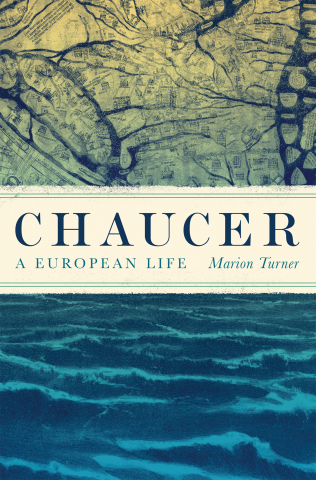Chaucer: A European Life by Marion Turner
/Chaucer: A European Life
By Marion Turner
Princeton University Press, 2019
“It is obviously easier to be dithyrambic than critical in chronicling this event; to which indeed dithyrambs are more appropriate than criticism,” wrote the great literateur Quiller-Couch a century ago when reviewing the latest massive Life of Chaucer to roll off the presses. “For when a man writes Opus vitae meae at the conclusion of such a task as this, and so lays down his pen, he must be a churl (even if he be also a competent critic) who will allow no pause for admiration.”
Quiller-Couch of course then proceeds, very smoothly and very politely, to be a bit churlish with his poor over-earnest professor, and his task has by no means lightened in the intervening decades: massive Chaucer biographies continue to roll off the presses. Richard West’s Chaucer: 1340-1400 came out in 2000 at 300 pages. Derek Pearsall’s The Life of Geoffrey Chaucer: A Critical Biography came out in 1995 at 365 pages. Donald Howard’s magisterial Chaucer: His Life, His Works, His World, came out in 1987 and was over 600 pages long. The latest of these, Chaucer: A European Life by Oxford University English professor Marion Turner, comes in at 600 pages of densely-written and amply-footnoted scholarship about the man who’s still often called the father of English literature.
As her book’s title indicates, Turner reminds her readers as often as she can that the father of English literature was a traveling man:
Chaucer worked for the English Crown - in effect for the English government. He always came back to this base, and he increasingly had responsibilities to his family. He was not an adventurer. But to be an educated Englishperson at this time demanded an international outlook; the court (like the city of London) was full of people of varying nationalities, the fashionable literary texts were mainly written in French, the queen and her ladies brought Hainault culture to the forefront. Aquitaine, like Calais, was English territory, and the borders of England were in a constant state of change. England, like other nations, was and is a process, always becoming something that it was not before.
Turner is a smooth, engaging writer and an exhaustive one. She obviously cares about keeping her readers interested (and she herself seems raptly interested throughout), but she’s likewise unwilling to skirt, condense, or over-simplify, and she has an enormous story to tell. Chaucer led a diplomatic life, a scholarly life, a Court life, and a personal life in addition to the literary life whose fruits made him immortal, and Turner follows every detail of every one of these lives, reads them all with unfailing complexity, and even manages to be a good though sometimes tone-deaf guide to the poetry itself (a criticism Quiller-Couch ventured of his own Chaucer biographer in 1894, come to think of it - perhaps it’s an occupational hazard?). And through it all, she’s alive to the same quality of mutability that so fascinated the poet himself. “His life story is a European story, everywhere dependent on the translation - the carrying across - of ideas, texts, and things,” she writes. “It is the story of the development of one of the most surprising imaginations in literary history, an imagination that changed what poetry could do.”
Chaucer: A European Life might be thick wading for the general-interest reader looking to learn about the man and his times; for such a reader, the long Introduction to some edition of The Canterbury Tales might be a better starting place - the one Jill Mann wrote for her superb Penguin Classics edition is probably the best in modern times. But for readers who already have a familiarity with Chaucer’s life and times, this meaty new biography is likely to be the best book on the subject for decades to come.
--Steve Donoghue is a founding editor of Open Letters Monthly. His book criticism has appeared in The Boston Globe, The Wall Street Journal, The Historical Novel Society, and The American Conservative. He writes regularly for The National, The Washington Post, The Vineyard Gazette, and The Christian Science Monitor. His website is http://www.stevedonoghue.com.
